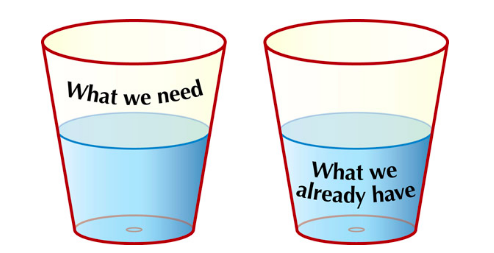By Sera Bulbul, The Hunger Project & The Movement for Community-led Development
Featured Photo: Odisha, India 2018, The Hunger Project
When organizations implement programs in communities, they tend to approach their role as producers of change. The perspective of community-led development organizations is that communities are the makers of their own change. The ideas for their development are locally created and owned. Achieving this perspective requires deep systemic change. It also requires a shift in mindset, both within the communities and within us who partner with them. The figure below aptly depicts this.

The two cups represent contrasting approaches to development. The cup on the left represents a community that is aware only of its deficiencies. They view themselves as voiceless recipients of aid. They are not in charge of their own development. The community on the left has not gone through the mental shift of learning that they as a community have the capacity to script their own future. It can also represent our mindset as development organizations who only see what is missing in a community and seek to fill it with our expertise.
The cup on the right illustrates that communities do not have to look externally for assets. It is deeply empowering to start with a community’s strengths, instead of identifying what is lacking. Our role is to catalyze progress, to “increase people’s self-help capacity, building on their traditional values and offering opportunities to draw from traditional, culturally grounded forms of mutual protection and assistance”(Cislaghi 2019).
This idea is not new. Kretzmann and McKnight (1993) describe the value of an assets approach that is empowering and builds interdependencies. According to their findings, “Rebuilding these local relationships offers the most promising route toward successful community development.” 26 years later, these ideas of development still ring true.
Community-led development hinges on the belief that communities are their own biggest asset. The relationships that they carry along with their bonds of trust and wisdom can enable them to overcome the biggest challenges. Their local goals are put in a position of priority, their voices are heard and their participation is encouraged. In this way, the development of these communities is more sustainable.


